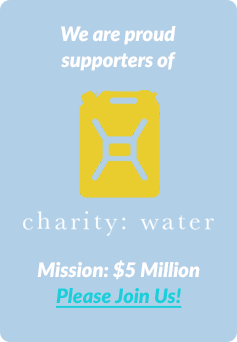A couple of years ago, I gave up a full-time salary in exchange for time so I could write.
I needed more hours in a day devoted to my dreams and less to someone else’s. Consequently, I had to give up a certain amount of financial security in exchange… at least for a while. At this point, I have no regrets about it, but if I hadn’t gotten my writing career off the ground, I’m sure in the end, I would feel pretty shitty about that. You know what I mean?
Regret is like an angry red scar that appears in our psyche to remind us of what could have been. It hangs onto us, refusing to let go, tattooing itself onto our brains. We almost always experience more regret about the things we haven’t done than the things we do. Even at death’s door, people can recall their regrets, so strong is their imprint on our consciousness.
I didn’t want that experience for myself, and while working for a salary was nice (new clothes, fun trips, eating out, movies, concerts, etc.), I began to feel like I would never find the window of time for what I really wanted. The longer I held onto the security and the money, the more likely it was I’d never write a single book. I’d end up old and gray, wishing I had.
The good news is that regret, like any other line of thinking, can be manipulated by intentional shifts in perspective. Simple changes in the way we live, think and make choices can help us avoid the potential for developing regret, as well as help us repair any negative experiences we wish we didn’t have.
These are some things I’ve found that really work!
1. Get clear about what matters.
When we don’t know what we want, we make decisions willy-nilly. We don’t have any guiding light or direction to prevent or lessen negative outcomes. Knowing what you most desire improves your chances of always heading in a beneficial direction. Create regular opportunities to revisit the source and voice of your desire. Seek to know your biggest WHY so it can orient your future toward more fulfillment and less regret.
2. Say yes, more often than no.
When we’re choosing, we’re actually always making two decisions, one is a yes, and the other is a no. Instead of focusing on what we don’t want, we should spend a lot more time saying yes to the things we do want. For example, if I feel like I need to say no to something I’ve identified as “not good for me,” like candy, I simply focus on what I’m really saying Yes to, which is a healthy body. I know that is a pretty simple example, but the same strategy applies for much larger decisions. If I’m generally saying YES to positive, life-affirming things, I’m going to feel a lot less regret about my decisions.
3. Develop a quality over quantity mindset.
We often hear that to avoid regret we have to travel more, get a degree, or have kids, but there is NO formula! Remember that what you are doing in any given moment isn’t nearly as important as how you’re doing it. So whatever you do, do it with all of your heart and soul. Don’t just check things off a list hoping that the sum of your experience will fulfill you. How you spend your precious time is important, so choose your actions with purpose and intent. Allow joy, love, and curiosity to guide your decisions about what to do and it will be easier to stay focused on the present as you are doing it.
4. Don’t compare yourself to anyone.
I know I say this A LOT, but it’s so important! When we focus on what others are doing — believing that what they are experiencing is better — we negate all of our own experiences. We fail at living our own lives to the fullest. This happens when we envy what others seem to be doing via their online presence. It can be easy to feel like you are missing out when you see pictures of a sister traveling more and doing more than you. Stop comparing… do you! In many cases, people who avoid social media tend to feel more content with their lives simply because they aren’t focusing as much on what others are doing and instead devote more conscious energy to their own lives and appreciate them more.
5. Allow joy to dictate decisions vs. fear.
Decisions made out of fear are usually reactionary and defensive, and can easily lead to regret. Instead of going after what we specifically want and need, we often hedge our bets to avoid discomfort. Decisions made from joy almost never lead to regret. Joy leads us deeper into the expression of our true being and fear leads us away. Even when the outcome isn’t exactly what we’d imagined, we’re still able to see the gift inherent in joy-inspired experiences. Identify your fear-based reactions and the beliefs driving them so you can eventually let them go.
6. Re-frame regret as a learning opportunity.
We may not know why we chose a cheating spouse or a career that we feel bored by, but we can definitely seek to discover things about ourselves from choosing and then changing our minds. As long as each of our decisions is leading us closer to the life we want, we can use them as feedback. It’s important to realize that we all come into the world without experience. Trial and error is the only way we can learn best what we need. It may take some time to understand them better, but every experience teaches us something about who we are, and ultimately who we can be.
Regret is what we feel when we realize we’ve been giving our life away, one tiny morsel at a time to people and things that aren’t in alignment with the deepest desires of our authentic self. Regret is what we feel when we realize we’ve been living a lie, trying to be good, or right, or enough of whatever we think will make us happy instead of just relaxing into our being, accepting what we’ve been given to work with as if it were the greatest gift on earth.






